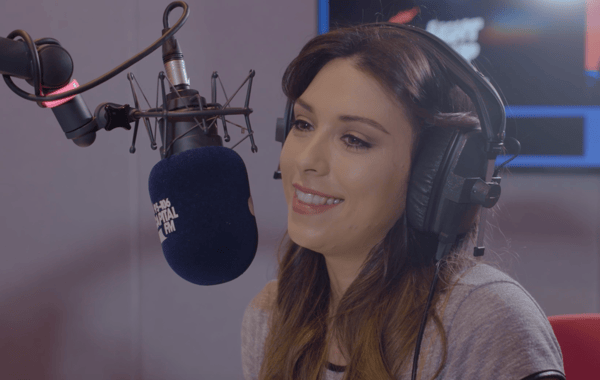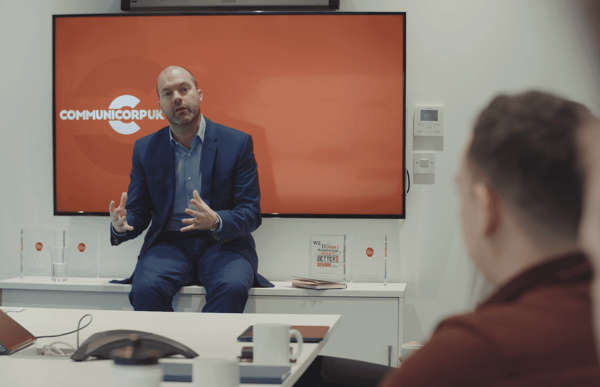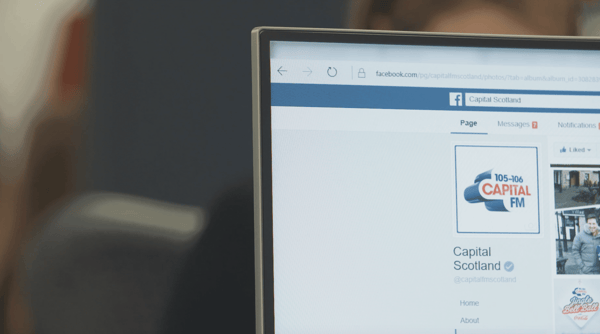Pick a section from the list below and you'll jump straight to it:
What Job Roles Are Available In Media?
7 Things To Look For In A Media Company
How To Create A Stand-Out Sales CV
Cover Letter Examples and What We Look For
What Not To Do When Applying For A Job
Networking: It's Not As Hard As You Think
The Do's And Don'ts Of A Job Interview
The Best Advice To Grow Your Career
Building Your Personal Brand Online
6 Interview Questions You Might Be Afraid To Ask and Why You Should Ask Them
Job Interview Fails and How To Avoid Them
10 Things Every Job Hunter Should Be Doing
Why You Need To Think Outside The Box To Land Your Dream Media Job
10 Ways To Improve Your Cover Letter
Freelancing: Is It For You?
5 TED Talks For Career Success
What job roles are available in media?
Working in media is just as exciting, fast-paced, glamorous, edgy, dynamic and aggressive as you could imagine. If this is a career that you dream of then there are so many opportunities which exist within media ranging from; programming, marketing, sales, journalism and digital.
In a recent report from the Radiocentre, listeners feel twice as happy when they are listening to radio than when they aren't. With no day the same, there are a range of people who work together to create this powerful medium.
Types of Media Jobs
There is so much more to working in media than you might realise. There is an army of people which are the backbone to the media industry by servicing and supporting every person, every team and location and delivering results for their consumers and customers.
Programming

Programmers have overall responsibility for all aspects of a radio show, podcast or TV show. It's their responsibility to lead their show by generating creative and compelling ideas for content. Many people start out in programming as an intern looking after day to day tasks which are essential to a programming team.
Programming job roles:
- Intern
- Producer
- Programme Controller - click to meet James
- Production Assistant
- Production Manager
- Project Coordinator
- Project Manager
- Radio Operator
- Recording Engineer
- Sound Mixer
- Technical Producer
We are passionate about giving young people an opportunity to get experience of life inside our radio stations. We have a long standing partnership with the Student Radio Association so that we can stay connected to fresh talent in all of the regions we broadcast to. Katy J interned with us two years ago and has now gone on to presenting her own cover show on Capital Scotland. Click here to find out what she got up to as an intern.
Marketing

Marketing teams are vital to the media industry. They are the face of our brands and customers, defining and growing reach by taking brands to the streets to engage with their local communities. Marketing roles are needed across the whole media industry to help devise promotional and branding strategies, nurture client relationships and connect their brands to our listeners and consumers.
Marketing job roles:
- Marketing Promotions Specialist
- Media Researcher
- Project Manager
- Promotions Assistant
- Promotions Coordinator
- Promotions Manager
- Marketing Intern
- Marketing Assistant
- Marketing Executive
- Marketing Manager
- Marketing and Promotions Manager
- Commercial Marketing Executive - click to meet Jess
- Commercial Marketing Manager
- Assistant Media Buyer
- Copywriting Intern
- Junior Copywriter
- Senior Copywriter
Sales

If you didn't know already, various free media such as commercial radio, make their money through advertising. Industries spend millions, even billions of pounds to win our hearts and minds, influencing our choices towards their products and ideas. Sales teams are the connection between the media industry, brands, consumers and audiences, achieving the best results for everyone.
Sales roles:
- Account Representative
- Advertising Sales Representative
- Brand Ambassador
- Customer Care Representative
- Account Executive
- Account Manager
- Senior Account Manager - click to meet Naomi
- Account Director
- Sales Executive
- Senior Sales Executive
- Sales Director
- Sales Manager
- Commercial Director
- Regional Managing Director
- Regional Business Director
- New Business Development Executive
- Business Development Manager
- Business Development Director
Digital

Radio and TV are one of the strongest mediums available but even they are not immune to the digital challenge as online services grow in popularity. Our Digital teams combine digital with traditional media such as radio and TV to amplify brands by up to 200% extra qualified reach. They've always got their fingers on the pulse and work hard to create brilliant and unique content through social media and paid search, connecting brands to their customers.
Digital roles:
- Digital Media Specialist
- Communications Specialist
- Communications Director
- Communications Manager
- Communications Executive
- Content Marketing Executive - click to meet Jamie
- Content Marketing Manager
- Head of Digital
- Digital Designer
- Social Media Specialist
- Social Media Executive
- Social Media Manager
- Digital Manager
- Commercial Digital Executive
- Paid Digital Assistant
- Paid Digital Manager
- Email Marketing Assistant
- Email Marketing Manager
If you are serious about a career in media, then the world is your oyster. Use this selection to begin your media journey and land your dream media job. Why not check out our opportunities to take your next step, you could land one of these roles for yourself. To grow your career and be part of one of the most exciting and dynamic industries there is, click here:
7 Things To Look For In A Media Company
Today, more than ever, candidates are assessing future potential employers as much as being assessed for the job themselves. The relationship is two way, each seeking attributes they like, love and want as part of their future.
We know the assessment of being a great place to work begins for the candidate before we even engage with them. Keeping your shop front (i.e. your website) bang up to date with your company culture, stories and opportunities is key, but living up to the vision you create is even more important.
So, what should you look for in a media company that assures you, “this place is a bit of me, how do I get in”? Here’s what our people tell us is important to them.
- Values you can connect with
What are the company values and how well do they resonate with you? Values are expected to be lived in the way people work together and behave, to achieve success. We weave our values of Bravery, Integrity and Passion into our culture, policies and processes to make sure they are more than words on the wall, it’s the way we do things here, no exception.
- People led culture
What sort of people work there, and do they feel valued? Knowing more about the people who work there and if they feel valued. You can tell a lot about a company’s culture and the sorts of people who work there by checking out their website, social media channels and connecting with them. By taking a bit of a deeper dive into the people behind the company, you can get a feel for what their culture is really like and if this is a good fit for you.
- Opportunities to learn and grow
Look for a job that will help you grow, achieve your aspirations and enable you to be your best you. Whether you’re just starting out or moving to a more senior role, having the chance to learn new things is important at every stage in your career. Assess the level of investment the company makes in learning and development and what career paths are available. We have structured Academy programmes to grow our people in Leadership, Sales, Programming & Marketing, Creative and Digital – giving our people access to the learning they need to achieve the results they want in their role, career and in life.
- Employee wellness that works well
Expecting people to work hard and give their role 100% should not come at a cost of health and wellbeing. Having an effective employee wellbeing strategy in place is key to maintaining peak performance and developing a healthy, high performing culture.
- Work-life balance that really works
We know the struggle to balance work and life is real. Forward-thinking companies like us can make this easier for employees by giving more autonomy through flexibility. Something as simple as giving people control over their working hours across the week has been one of the most valued initiatives we have ever introduced.
- Rewards that feel rewarding
As well as the salary package, all the other incentives to be part of the team should be ones which tick all your boxes. Our rewards package has grown massively over the last 5 years and now feature; holiday buy and sell, flexible working, healthcare, pension, life insurance, income protection and Perkbox.
- Making a difference
Are you passionate about giving back to charities or your community? The company you work for should be too. We take our commitment to making a difference so seriously, it is written into our company vision and mission statement. From little gestures, to volunteer days and companywide charity events, we put the funds behind the plans which our teams deliver on together to make a true difference to their listeners, customers, colleagues and communities.
how to create a stand-out sales cv

Landing your dream job in media might be your biggest challenge yet. So, how do you make yourself stand out among hundreds of applications and turn the challenge into reality? Here are some top tips of what we look for in our media sales candidates.
Your Personal Brand
Your CV, is your platform to communicate your professional story and should reflect much more than just what you've done. It should be your highlight reel showcasing your talent, attributes and best accomplishments so far.
Get noticed
To get noticed, you need to make sure your CV is going to tick all the right boxes in the first glance.
- Firstly, it needs to be visually attractive and memorable. This will stop the hiring manager scrolling past when they see your CV. It should not only grab their attention, but it should also break down your content so it’s easier for the hiring manager to get to the information they need.
- In 2019, adding your sales experience in reverse-chronological order just won’t cut it anymore. Be more current by breaking down your experience into sections such as; sales experience, achievements, soft skills, technical skills and education, you will stand out above the rest.
- If you have any awards, shout about them and be proud of what you’ve achieved. Highlight them in their own section, and they should be displayed at the top with your most important sales achievements.
If you’re just starting your career and don’t feel like you have the level of sales experience a company is looking for, then don’t let this put you off. Your CV is a great way to promote your non-traditional sales experience and displaying this in the right way, might land you that interview.
The Summary - sell you in a powerful paragraph.
A good sales CV summary will highlight your desire to be the best for your customers, employer and colleagues. You should tailor this to match the job description of the role you are going for, ensuring your experience and interpersonal skills align with the needs of your potential employer.
Example
Katie Lee
Award-winning and CIM certified with over 10 years of national corporate sales experience in commercial radio and OOH industry. A passionate, first-class commercial leader delivering target expectations through inspiring ideas, meaningful relationships and results that matter to customers.
How should I include my sales experience?
As well as being able to demonstrate that you can do ideas, relationships and results better than anyone else, it’s important to also include some hard numbers to showcase your achievements in your past positions.
Be Succinct
- Highlight key areas where you excelled and exceeded your goals.
- This isn’t a time to be humble, you are selling the best version of you.
- Don’t just list your tasks, tell your story. It should show a clear path of your progression in your role.
- Don’t lie, stick to the facts and be honest about what you can do. Honesty is ALWAYS the best policy.
What if I haven’t worked in sales before?
Maybe you’ve recently graduated or you’re making a move into a sales career? You might think that you don’t have the sales experience that is needed for a great standout sales CV, but you’ve probably got more sales experience than you think. This experience could come from an internship, a side project or an organisation you volunteer for.
Top Tips:
- Start by identifying the skills and experience that you have which will be relevant for the sales role you’re applying for.
- Look back at your previous experiences to see what you may have done which could demonstrate that. Maybe you’ve worked in retail or another customer service job where your main goal is to listen to customers needs and always make them happy.
- Once you’ve identified your experience, emphasize it using the same language as the job description you’re applying for.
Skills
When talking about your skills, it’s good to break them down into technological skills and soft skills.
Technical Skills
Most technical skills in sales are to do with software for lead and customer management or presentations. This section is important for screening so a simple list of the relevant technical skills that you have will do the job perfectly.
The top technical skills we look for are:
- Salesforce
- Hubspot
- Microsoft Dynamics
- Skype
- Slack
- GES Traffic
- Artesian
- Docusign
- Account Management
- Cold Calling
- Social Selling
- Scheduling
- Pitch Delivery
- KPI goals
Soft Skills
While technical skills are still important in sales, the industry is still built on soft skills. To really stand out, you need to show how you can put those soft skills to good use.
Top soft skills we look for are:
- Drive for results
- Strong communication
- Influencing
- Proactivity & Initiative
- Problem solving
- Decision making
- Presentation
- Resilience under pressure
- Time Management
- Customer service and development
The key takeaways for a top sales CV
Demonstrate your potential impact to the company’s bottom line whilst making sure your story is wrapped up in an engaging and memorable way.
- Create a CV header which will show your certifications and make you easy to contact your summary very specific about your sales experience, accomplishments, goals and values.
- Include detailed metrics and specific examples showing the impact you have made in your previous roles.

Cover letter examples and what we look for

So, we’ve checked off crafting a stand-out sales CV, it’s now time to make sure we get our cover letter right.
After hours spent writing the perfect CV, you may be tempted to transfer that information into letter format. However, your cover letter shouldn’t be a regurgitation of your CV. That’s just a waste of the hiring manager's time. Instead, it should zoom in on a few of your key skills and experiences on your CV, making your letter bespoke for every application.
As well as your CV, this is your opportunity for you to stand out from the crowd and stop hiring managers mid scroll. We know that writing these letters can seem daunting at first, especially as it can feel like there’s a lot to remember. So, to help, we’re sharing what we look for with a few examples too.
The Creative Cover Letter
The key with doing something out of the ordinary is maintaining a balance. We love this copywriter cover letter that was shared in The Guardian. The aim of it is to be original and show you have imagination, but also understand what the job actually entails.
Dear Ms Green,
- Confused by commas?
- Puzzled by parenthesis?
- Stumped by spelling?
- Perturbed by punctuation?
- Annoyed at the apostrophe? (And alliteration?)
Well, you’re not alone. It seems that fewer and fewer people can write. Unfortunately, there are still a lot of people who can read. So they’ll spot a gaffe from a mile off. And that means it’s a false economy, unless you’re 100% sure of yourself, to write your own materials. (Or to let clients do it for themselves.)
To have materials properly copywritten is, when one considers the whole process of publishing materials and the impact that the client wishes to make, a minor expense. Sloppiness loses clients, loses customers.
There is an answer. Me. Firm quotes are free. You can see some of what I do on my multilingual website at [insert web address]. If you’d like, I can get some samples out to you within 24 hours. And, if you use me, you’ll have some sort of guarantee that you can sleep soundly as those tens of thousands of copies are rolling off the presses.
Luck shouldn’t come into it!
With kindest regards
The Personalised Cover Letter
The first thing we look for in someone who is coming to join us, is if their values align with ours and they have done their research about their potential employer. This cover letter example from Kick Resume, is a great example. The applicant has used their letter to zoom in on the relevant skills which make them stand out as a prime candidate for the position.
To Whomsoever It May Concern,
Reading through the culture statement for Tata Global Beverages Limited, I realised the importance laid by the organisation on an employee-orientated environment, where diversity in thoughts and actions is welcomed, and collaborative learning is strived towards. Considering this very core value of your organisation which is of great importance to me, I am applying for the position of Brand Manager at TGBL as advertised on your website.
I have been working as the Marketing Manager - Consumer Products Division at Kaya Limited for the past 24 months and have instilled skills required for a groomed brand manager. Researching about TGBL, I have noticed that you strongly recognise employee contributions through teamwork and empowerment. My entire work experience is enriched with promotional product projects carried out in teams where mostly I have worked in the leading position / where mostly I have been involved in the leadership role. This includes, but not limited to, launching three new successful brand initiatives.
Through my two years’ of the professional career, I have demonstrated a keen ability to lead and influence internal and external stakeholders across the business with my communication and ideation skills. Other than that, I effectively managed the budget and respective performance, product sales, and consumer reactions. Through rigorous hard work and a keen eye to detail, I have been able to achieve outstanding results, substantiated by receiving the awards for the Brand Launch of the year in 2016, Most Innovative Initiative Award in 2016 & achieving record sales for Kaya's Hair Care range of products with 271% over-achievement of sales target.
I am sure, given the opportunity, I can bring significant value add to your organisation, utilizing my appropriate skill set, relevant experience, and education.
Hoping for an opportunity to discuss my interests and qualifications in an interview further, I have enclosed my resume for your review. During the time in between, I can be reached at +99 9999-9999 and hello@kickresume.com.
Thank you for your time and consideration.
What we look for in a cover letter
When it comes to hiring the right talent for the right role, we look to see if your personality and values will align with ours and examples of specific accomplishments.
Our Values
- Passion: the desire and willingness to be the best.
- Bravery: step outside your comfort zone.
- Integrity: be true to yourself, your team and the business.
Our DNA
- Collaborative: working together to deliver results.
- Creative: creating ideas that inspire, awakening possibility.
- Progressive: always seeking the freshest ways of working together to be the best.
- Entrepreneurial: we think and do things differently, making us stand out in the industry.
Tips for writing your own cover letter:
Tailor each letter to the job. It takes a little extra time, but make sure you write a cover letter which is unique to the job that you’re applying for, relating your skills and experiences to those noted in the job posting.
Use keywords. A useful way to tailor your job letter to the job is to use keywords from the job advert. Take the job advert, circle any words that seem critical to the job, such as skills or qualifications. Try to use some of these words in your letter. This way, the employer can see straight away if you match the requirements of the job.
How will you add value? Think of concrete ways to prove you will add value to the company including specific examples of accomplishments from previous jobs. For example, if you helped reduce employee churn by 10% at your last company or implemented a programming strategy which increased listenership by 20%, include this information.
Show your personality. Your cover letter doesn’t have to be boring. By taking some time to showcase your personality and how it will be an asset to the employer, can help you get noticed. At CCUK, we are straight talking and witty. We are humble not arrogant and purposeful with humility. Showing that your personal values and attributes align with those of the company is a really good selling point.
Check, check and check again. Your cover letter is your only and best chance to sell yourself to a hiring manager without them even knowing anything about you, so make sure it’s perfect. Read through your letter and proofread it for any spelling or grammar errors. Double check the job description and make sure you have zoomed in on any relevant skills. Get a friend or family member to read it as well as they might pick up something that you haven’t. You want to make sure your letter is polished before submitting it. 
What Not To Do When Applying For A Job

So far, we’ve shared loads of tips about nailing your dream job in media but if you’re serious about getting it right, first time, you should also know the pitfalls to avoid.
Learning from our mistakes is always good experience but getting it right first time, always feels best. Here’s what not to do when applying for a job in media:
Typos
There is no such thing as checking too much. Check your CV, cover letter, and every single email that you send for grammar and spelling – even if it’s just a confirmation email, LinkedIn message or text message to a contact. If you submit a job application with errors in it, it can knock you out of the running for a job straight away.
Liar, Liar, Pants On Fire
It’s important to sell the best version of you but if you start to bend the truth, it could come back to bite you. Any credible hiring manager will ask for examples of your past work. If you have an inaccurate list of experience and skills, you’re only going to continue to dig yourself a bigger hole. Just don’t do it. A future employer would much rather that you were honest about your abilities to fulfil the role, and show your potential to learn and grow.
Social Spoilers
It’s important to have an online presence when looking for a new job but, it’s also important to be mindful of the content that you post and how your profile is portrayed, especially if you connect your work to your personal profile. Hiring managers often screen candidates’ social and professional media, so it’s important to not post inappropriate or offensive content that could affect you landing your dream media job.
Forget The Power Of Your Connections
Building out your professional network is always a good idea, especially in media. If it’s appropriate, you might want to change your LinkedIn status to ‘open to offers’ and with an updated profile of skills, experience and attributes, you will appear in more searches and potentially stand out to the right recruiter.
You’ve Reached The Voicemail Of…
If you’ve applied for a job, make sure you are checking your emails and phone constantly. The minute you become hard to reach, you are putting yourself another step away from being in the running.
Show Me The Money
When a job posting doesn’t advertise the salary, it’s usually because the salary will be dependent on your experience. It’s courteous to let the employer make the move when discussing the salary expectations for the role you’ve applied for. However, it always helps to do your homework to get a good understanding of the market value of your experience.
Are you feeling ready to apply for your dream media job? Why not have a look at our vacancies.
Networking: It's Not As Hard As You Think
If you ask anyone about their experience at a networking event, you're bound to hear some horror story about utter rudeness or awkward encounters.
You see, networking doesn't have to be filled with horror stories. You don't have to bring 100 business cards and hand out every single one nor do you have to shake every single hand in the room. You just need to know how to identify the best networking opportunities, how to build a solid foundation and grow a strong circle of connections.
Whether your professional goal is career advancement, career change, finding a mentor, or just keeping up with what is going on in your industry, polishing your networking skills and seeking out opportunities to network can help you achieve your dream career goals.
Identifying networking opportunities
There are loads of opportunities for ‘official’ networking. Here are a few:
- Professional or trade organisation conferences
- School/University alumni events, online networks
- LinkedIn industry and interest groups organised networking socials around the country
- Industry book signings or conferences with guest speakers – a lot of these can be found on Eventbrite
- Local newspapers and community bulletin boards
- Newsletters from your workplace or organisations you are affiliated with
We've all had chance encounters that have often changed the course of our lives or opportunities which have landed in our laps just by being in the right place at the right time. But what about those opportunities that require a little more effort and personal risk (no one likes rejection) but may offer more reward than routine networking events?
Initiate a conversation in an unexpected setting.
Have you ever heard an engaging conversation relevant to you in a coffee shop or airport? It never hurts to join or initiate a conversation if you have something applicable to say. It gives you the opportunity to connect with an individual or a group of people in an organic way.
Grab a desk in a co-working space.
A co-working space is the power pocket where you make connections, conversations begin and valuable relationships are formed. If you're looking to meet graphic designers, join a co-working space that's full of them. A co-working space keeps the vibe casual but brings you under the same roof as other free agents.
Approach public figures
Write down three people you admire that are public figures. Got more than three? Don't limit yourself! Whether you admire the CEO of a FTSE 500 company, a notable entrepreneur or even your favourite blogger, note down a few people you admire and some questions that you would ask them. Then, search for them on LinkedIn and see if you can find their direct contact information. You've got nothing to lose by getting in contact with them. You might be surprised at what you get back.
Having a networking conversation
Whether you love getting to know new people or you dread being in a room full of strangers, having good conversations is the key to networking effectively.
Here are some tips for networking in person and by phone:
Listen
Try to just listen to the person you’re talking to. You’ll be valued for it. Try to make and keep eye contact. The person you’re talking to will only find it annoying if your eyes are wandering across the room. Concentrate on what they have to say and make thoughtful comments in response.
Develop rapport with the person
Be a good listener and ask some open-ended questions. Your goal is to get the conversation going and to make the person you’re speaking to interested in talking to you. A good way to do that is to be interested in what they have to say and find some common interests to share and learn from.
Don’t take the cold shoulder
If someone isn’t giving you a positive message or you’re getting ‘the cold shoulder’ move on and don’t let it discourage you. Nine times out of ten, it won’t necessarily be because of you. You don’t know what other events are going on in the person’s life that could be affecting their mood.
Following Up
It’s important to realise that networking is a two-way street. As you meet people and network for your own goals, be mindful that others will be doing the same. Having a conversation and getting a business card is just the beginning. To make your new contact work for you, you have to make an effort to grow the new relationship.
Those you interact with infrequently are just as important to your network as those you interact with all the time. Many opportunities come from people you may not know well at all, because they are part of different circles and come across different opportunities.
Being friendly, being yourself and extending professional courtesy to everyone you meet are all important factors in successful networking.
The Do's and Don'ts Of A Job Interview

So, the two-way process has begun. The employer likes the look of you on paper, so it’s time to see if you have the right chemistry for the start of a beautiful relationship. This is the hard part but, don’t let it scare you.
Now, we could sit here and tell you stuff you already know such as making a positive impression and convincing an employer why you will be a good fit for a company, but we’re pretty sure you already know that.
Want some real advice, directly from the people who have landed their dream media job?
Just be you
Be confident in yourself, your ability and your potential to grow. If you believe you have what it takes to be a success, just be ready to tell us why, or show us how. Authenticity, self-awareness and personal values win every time over showboaters and average Joe’s.
Do your homework
Show the employer that you’ve done your homework by knowing what their company vision, mission and values are. Expect to be asked to demonstrate how your personality will fit into the culture of the business.
Ask questions
An interview must work both ways, right? This is your opportunity to assess your potential employer. Don’t be afraid to ask questions. It shows how committed you are to the role.
Listen
You also want to demonstrate that you are a good listener and can stay focused on a topic. Listen to each question you are asked then, calmly and confidently, answer the question in a way which will highlight your best attributes.
No room for negativity
When asked about your weaknesses, don’t fixate on them. Be prepared to acknowledge them but also use them as an opportunity for you to learn and grow in your new role.
Honesty is the best policy
Avoid the temptation to exaggerate when addressing your skills and accomplishments. It’s always good to put a positive spin on what you can do, but it all needs to be truthful as it could only end up coming back to bite you and raise questions about your character.
What we look for
As with any interview, there will be plenty of questions that are specific to the role requirements but what we also look for are signs that you are creative, can work collaboratively, are progressive in your thinking and approach. We also love a bit of entrepreneurial flair.
With these kinds of standards, you can see that we don’t do average. We do squeeze as much of our award-winning culture into our hiring process as we can, to give everyone we engage with a more memorable experience.
The Best Advice To Grow Your Career

Regardless of whether you’re just starting out or you’ve been working in media for 10 years, words of advice can always help you grow.
That’s why we’re sharing our best career advice to grow your career in media.
Get in the driving seat
Every year take some time to sit down and think about your work and what you want to achieve over a 12-month period. With this line of sight set in place, you can be assured that personal success is within reach and achievable with the right belief, attitude and commitment to deliver your best performance.
Each year, everyone at CCUK completes their Personal Best plan, agreeing individual business, career, learning and life goals for every employee for the year ahead. They also love looking back at their previous goals to see how far they have come and what they have achieved.
Say yes
Be willing to take risks and step outside of your comfort zone to grow your career. Say ‘yes’ to the things you fear and explore every opportunity that comes your way. Whether it’s applying for a promotion, taking on a new project or signing up for that course you’ve been meaning to for the last year, don’t limit yourself. Be brave and step outside of your comfort zone to get ready for your dream media role.
Learn Something New
As we compete to stay ahead of the curve, it can be very fast paced in the media industry. Treat your career as a learning opportunity and be open to new ideas every day. As Dr. Seuss once said, “the more that you learn, the more places you’ll go.”
LinkedIn research found that 89% of professionals feel that skills are more important that job titles. By continuously learning, you are allowing yourself to be more flexible and adaptable in your media career path, something which is valued very highly by employers.
At CCUK, we love learning and believe in giving everyone access to the learning they need to achieve the results they want in their role, career and even in life. We’ve invested more in learning than we ever have before.
Show integrity
This is one we live by every single day. Be true to yourself, your team and the business. Be willing to accept your failures and learn from them. It’s always better to be honest about your abilities and showcase your willingness to learn new things rather than lie about your abilities and fall at the first hurdle.
We are committed to growing our own talent by giving them a platform to perform, a canvas to create and the autonomy to do what they do best which is why our Executive Team look for consistency in our employees performance, role model behaviour and professional experience in the Communicorp UK Commercial Assessment Centre.
Building Your Personal Brand Online

Promoting a brand in the right way to reach the right audience is super important and the same rule applies to you. Whether you’re a freelance presenter or have a full-time sales role, it’s important to use social media effectively to market your personal and professional brand.
According to Brighton UK, almost 91% of employers admitted that they screen prospective employees via social media.
Check out our top tips for building your brand online:
1. Be You
We’re starting with the most important one first. One of the worst mistakes to make on social media is not representing your true personality. Having a profile(s) which really reflects your character rather than a false persona is one way of letting prospective employers get to know you on a more personal level. Be careful! It’s important to be mindful of what you are liking and sharing because that will reflect your own views and values.
2. Seek relationships, not just followers
Building strong relationships on the right networks is one of the easiest things you can do on social media. The great thing is that you can do this with anyone, anywhere, in any industry. Forming relationships means interacting in the right way.
Here’s some ideas:
- Always tag the people you reference in your social media posts
- Answer people’s questions
- Reply to people who tag you or share your content, even if it’s just to say thank you!
- Less likes and more actions. Start more conversations by replying with a comment or question
By following just a few of these steps, you could be opening doors to new relationships and new opportunities.
3. Keep your finger on the pulse
Keep up to date with any news or developments in your industry to ensure you are always reactive and up to speed on what’s happening by reading industry publications, blogs and websites. You might find that they provide you with some conversation starters on LinkedIn and discussion points for when you get to interview stage.
4. Get recommended
LinkedIn is a good tool to add value to your CV and bring it to life. A great feature is recommendations – comments made by other members to recognise a present or past colleague. Comments made by other members to recognise their past or present colleagues for their skills, talent, work ethic and experience.
Just finished work experience? Request for a recommendation through LinkedIn. This will add credibility to your profile when potential employers screen you for future roles.
5. Join the right groups
Facebook and LinkedIn both have plenty of groups focused on topics or industries. Take some time to find groups that line up with your dream media role, then you will be able to learn from new connections and keep up to date with your industry. Use these groups to jump into discussions.
Don’t be afraid to add your voice and build authority around your personal brand.
6 Interview Questions You Might Be Afraid To Ask and Why You Should Ask Them
“Do you have any questions?” It’s that moment at the end of every interview when the tables turn and you decide whether you’ll take the easy option – politely smile and remain silent. Or, you brave the questions you’d really like to ask but are afraid to. The interview process is a two way street and given the chance you should use your opportunity to ask the right questions which let you asses their fit for you. It is your future too, after all.
We asked our teams what the questions that they would fear asking so here are some questions you might be afraid to ask and why you should answer them:
How will my role add value to your business?
Aside from the duties listed in the job description, you’ll want to know how you will add value to a team and contribute to the company’s overall success. This will then allow you to assess if this expectation matches your current skill set and what you can expect to accomplish at the company. It will then allow you to see how your skills will contribute to the team achieving their goals. If their expectations does not match your desire or level of capability, now is the time to speak up. Honesty is always the best policy.
Is this a new position?
It is important to know if you’re being expected to pick up the reigns from someone else or will building new role from the ground up. If the position isn’t new, you might want to find out some background on the role and team such as how many people have held that position in the last few years. Obviously, the more people in the position over that period could be a red flag for high people churn. But this is not always a negative. It can be a sign of growth or internal progression and career prospects for you. Either way, it's worth finding out early on.
Is there an opportunity for me to grow my career?
The reason you are attending a job interview is because you want to take the next step in your career and land that dream media role. Asking about career progression shows your future employer that you are progressive in your thinking and approach to work and learning. It also shows your commitment to growing your career inside the company. If there isn’t an opportunity to grow your career in this role, you will need to assess whether taking this role will be a step in the right direction. If it won’t provide you with any growth towards your dream media job, you might want to reassess why you really applied for the job.
How would your team describe you? (or if you’re feeling brave [we like bravery] you could ask “What’s your management style?)
Learning more about your manager and the teams inside the company shows your commitment to the role and attention to detail. Finding out about your manager’s style of leadership enables you to see if this is someone who shares the same values as you and if you will work well together. Alignment on values is an important one as is staying true to yourself and the business and give 100% at everything you do. By not sharing the same values, this could not be the best working relationship for you.
What is your employee retention rate?
It’s fair for you to ask this as it demonstrates that you are someone who takes their career seriously and with care. Any good employer will respect you for asking this question and should respond openly and honestly to help you make an informed decision about the role. If there is a high churn rate, take the time to explore this and find out whether it is because of the culture, team or role.
What are your future plans for the company?
Any good employer will want employees who are invested in their company's future and will be open to sharing their future plans and goals. This can give you sight of the security and long term prospects of your new role.
Many candidates forget that us media companies are looking for someone who is creative and collaborative with a bit of entrepreneurial flair. By bringing thoughtful questions to the table, you’re on your way to landing your dream media job.
Think you’re ready to grow your career with us? 
Job Interview Fails and How to Avoid Them

You’ve found the dream media job, made the application and been shortlisted for an interview. What happens next is all determined on how you sell yourself in an interview.
Don’t fall at the second hurdle! Our people share their top job interview fails here to help you avoid the same.*
Be prepared for the unexpected
“I graduated from university with a degree in media and set out to land my first role in media by applying to be a Junior Researcher for Wright Stuff. I was fresh out of university and still a bit clueless by the real world so was applying for anything. When I arrived for the interview, they had written a test for me on current affairs with questions such as ‘who is the minister for transport?’ and I had no clue. I thought I was in way over my head. From then, the interview didn’t go very well. I week later, I got an email telling me to call up to find out if I’ve been successful. When I did call, I got to an answering phone and had to leave a message, something I wasn’t good at. I managed to garble through all my details, sounding like a bit of an idiot and put the phone down. When I hung up, I screamed ‘you idiot, you can’t even leave a message!’ I went back over to the phone and I hadn’t put it down. Mortified, I ran around the house screaming then called back to leave another message and said that a spider had ran up my leg. Safe to say, they never called me back.”
The obvious lack of preparation can be an opportunity crusher for you. Making sure you are prepared in all the right areas may not guarantee you have all the answers, but it will increase your chances. Fail to prepare, prepare to fail.
Top tips to prepare for a job interview:
- Analyse the job description to make sure you meet the requirements.
- Write down each responsibility and then note down how you will deliver on that. Think of situations where you where you have demonstrated this requirement so that you have a story to tell.
- Make a note of all your accomplishments which relate to the job. Getting them out of your head and into note form will allow you to create a timeline of achievements that you can walk the hiring manager through.
- Do your research so that you can make sure you’re prepared for the ‘what do you know about us’ and ‘why do you want to work here’ questions. Make notes of the products and services they offer, the company’s mission and values.
We All Get Nerves
“I was doing a presentation in my interview and I was so nervous. I’d had advice that if I got too nervous, I should stop, take a sip of water to calm myself and then continue. However, I was extremely nervous. I stopped halfway through, picked up my water and I had the shakes, so it was spilling everywhere, over the desk, my shirt and my face. I put the cup back down and didn’t bother with it again.”
“I had a panic attack right before a job interview as I was waiting to go in. Had to hide in the loos. Not good.”
No matter how much research you do for an interview, nerves can sometimes get the better of you. Here’s some top tips you can try to calm those nerves in advance of the meeting from The Muse:
1. Go for a walk
2. Practice the S.T.O.P. method
3. Prepare for the worst
4. Make an interview cheat sheet
5. Plan something afterwards
6. Eat a good breakfast (or lunch)
7. Give yourself a pep talk
8. Call a friend
9. Listen to music
10. Smile
11. Use your stress as adrenaline
12. Remember it’s just an honest conversation
Give Yourself Plenty of Time
“I’d recently came out of the Air Force and went for my first job interview in a long time. I didn’t have a car at time, so I had to get the train and then walk across town in the freezing cold weather. I made it to the interview with minutes to spare. When I got there, I was offered a hot cup of tea. It was in a thermal mug, so I had no idea how hot it was until I took the first sip. I ended up burning my mouth and spitting the drink out on the floor in front of the interviewers. I didn’t get the job.”
It’s always better to be early to an interview than late. The day before your interview, check the weather and travel options then plan to leave with at least half an hour to spare. Then, if you arrive early, this will allow you to pull yourself together so that you feel calm and collected when you walk into the interview.
Little White Lies Always Come Back to Bite You
“My sister was prepping for her upcoming job interview and found out that the hiring manager was an equestrian fan. Trying to impress the hiring manager, she started talking about her love of horses to which the hiring manager responded asking her questions about grooming and competitions that she had no idea about. When most people would give up, she continued to make conversation about her love of horses. Thinking she had a lucky escape; she was offered the job. A few weeks into her new role, her boss asked her on the spot if she would like to go horse riding. With no time to make up an excuse she said yes. She got there on the day with no idea on how to ride the horse and had to confess everything to her boss. Thankfully, she saw the funny side and taught her some basic skills.”
It’s always a good idea to research who is interviewing you by checking out their LinkedIn profiles to see if you have anything in common with any of them. This will allow you to pick out your similar interests and strike a conversation with them. However, if you don’t spot any similar interests, don’t lie to try and please the hiring manager. This will always end up coming back to bite you in some way. A hiring manager would much rather that you were honest about your skills, interests or achievements rather than lying about something and not being able to deliver on them.
Everyone makes mistakes and often the mistakes that we do make are not always fatal to your job search. But, by learning from these errors, you should be on track to landing your next media job in no time.
*all answers have been kept anonymous.
Think you’re ready to nail that dream media job interview with us? 
10 Things Every Job Hunter Should Be Doing

Whether you’ve just graduated and looking for your first job in media, or whether you’re tired of your current job and are on the hunt for a new one, knowing what every media job hunter should be doing will give you the edge.
We’re sharing our top ten tips that every job hunter should be doing:
1. Research your role options
So, you’ve decided you want a career in media. But what exactly do you want to do? There’s so much more to working in media than you might realise. There is an army of people which are the backbone to the media industry by servicing and supporting every person, every team and location.
2. Create a stand-out CV
Landing your dream job might be your biggest challenge yet. So how do you market yourself to stand out among hundreds of applications and turn the challenge into reality?
Your CV is your platform to communicate your professional story and should reflect much more than just what you’ve done. It should be your highlight reel showcasing your talent, attributes and best accomplishments so far.
3. Tailor your Cover Letter
After hours spent writing the perfect CV, you might be tempted to just transfer that information into letter format. Don’t. Your cover letter shouldn’t be a regurgitation of your CV. It’s a waste of the hiring manager’s time, reading the same thing twice.
Instead, a cover letter should zoom in on a few of your skills and achievements, making your letter bespoke for every job application. A useful way to tailor your cover letter to the job is to use keywords from the advert. This way, the employer can see straight away if you match the requirements of the job.
4. Network
Networking doesn’t have to be filled with horror stories. You don’t have to bring 100 business cards and hand out every single one, nor do you have to shake every single hand in the room. You just need to know how to identify the best networking opportunities, how to build a solid foundation and grow a circle of connections.
Whether your professional goal is career advancement, career change, finding a mentor, or just keeping up with what is going on with your industry, polishing your networking skills and seeking out opportunities to network can help you achieve your dream career goals.
5. Build your personal brand online
According to Brighton UK, almost 91% of employers admitted that they screen prospective employees via social media.
Promoting a brand in the right way to reach the right audience is super important and the same rule applies to you. Whether you’re a freelance presenter or have a full-time sales role, it’s important to use social media to market your personal and professional brand.
6. Find the best job listings
What are the best sites to use to find job openings quickly? Check out the best job search engines, networking sites and niche job sites for the role you are looking to land.
Consider registering your details with a recruitment agency to maximise your job opportunities.
7. Job search where companies are hiring
Register your CV on job boards where media jobs are being posted. This way, you can position yourself to increase your chances of getting found by hiring managers. One of those important job search strategies you can use is to focus your efforts on the same job sites that companies are using to recruit.
When searching for a job, you need to make it easy for companies to find you need to make it easy for employers to find you online.
8. Connect with your contacts
Now that you’ve built your personal brand online, use it. Connect with everyone you know because you never know which contact may be able to help you with your job search or put you in touch with someone who can. If you’ve recently graduated from university, check out your contacts who are available from your university alumni.
9. Prepare to Ace the Interview
Taking the time to prepare for your job interview in advance will really help you succeed. The more prepared you feel, the more you will be able to ace those tricky questions.
Before you go, research everything there is to know about the company. Show the hiring manager you’ve done your homework by knowing what their company vision, mission and values are. Be confident in yourself, your ability and your potential to grow.
10. Don’t forget to follow up
It’s always good manners to follow up after an interview by thanking everyone who you met on the day. Also, reiterate your interest in the position and summarise to the hiring manager why you are an excellent fit for the job.
A quick email or note thanking the interviewer for their time will give you another opportunity to make a good impression.
Why You Need To Think Outside The Box To Land Your Dream Job
A few months ago, a woman contested a job rejection from Aldi because she believed that she did meet the requirements of the job and guess what… she ended up being offered another interview.
The reality of searching for a job is that you need to stand head and shoulders above the rest of them to make sure you’re the prime pick of the crop.
We’re sharing a few ideas that you can use to beat your competition, cut through the noise and get noticed first time.
Be proactive, not reactive
According to Business Insider, at least 70% of jobs are not even listed. Now is a time to make yourself known. Develop your contacts – these can be friends, family, neighbours, university alumni – anyone who can help you get your foot in the door.
Why not take a direct approach and contact the company you want to work for, even if they aren’t hiring right now. If they spot your potential, they’ll invite you for an interview or a quick chat. If they don’t have the right role now, they’ll know exactly who to approach when they do need someone.
Use video
The competitive nature of the job market requires your CV to be as creative and unique as possible to catch the attention of your future potential employer. Creating a video to go alongside your standard CV is a great way to stand out from the crowd. It instantly puts a face to your name, catching their attention with the skills and experience that you have to offer them.
Click here to watch one of our favourites
Write about your dream job
If you’re quite the wordsmith, you can use your writing skills to your advantage. A great way to showcase your ability, and career interests, is to blog about something you’re passionate about. This is a perfect way for you to demonstrate your writing style, thought process and personality. Even if your blog doesn’t go viral and catch your dream company’s eye, it will build your professional reputation and brand – which are key to landing any job.
Buy a google ad
What if we told you that spending no more than a tenner could land you a job?
Well, that’s what Alec Brownstein did. Brownstein bought himself a Google ad, targeting the names of several advertising executives – one of whom was Ian Reichenthal. When he eventually googled his own name (as we all do at some point), he found Brownstein’s tailored ad. He was then offered the chance to interview and eventually offered him a job at his advertising firm.
The most important one
Most importantly, to land your dream media job, you will require self-belief. You must believe in yourself to know what role you want, take charge of your job search, promote your personal brand and keep going, even if you do fail. Always ask for feedback, learn from it and go again. If you are truly passionate about your dream media job, you will land the right one for you.
10 Ways To Improve Your Cover Letter

“A cover letter can make the difference between two equally qualified candidates.” John O’Neill, Assistant Dean of Career Education, Stanford University.
One of the hardest parts of writing your cover letter is that you can spend hours perfecting it knowing that there is no guarantee of anyone reading it.
Writing a good cover letter takes a lot of time and effort. You need to sell the very best version of you and show the employer why you’re the perfect fit.
What’s the best way to get your cover letter noticed when the employer has a ton to look through? We’re sharing 10 quick and easy steps to take to make sure the hiring manager won’t want to toss it aside after the first paragraph.
1. Keep The Employer In Mind
A well written cover letter is one that is written with the employer in mind. It might feel good to talk about how much that role will benefit and mean to you but what the employer really wants to do is see how your skills and experience will add value to the role that you’re applying for.
2. Personalise it
Is there something about the company that excites you and makes you want to work there rather than all the other companies which are out there? Read back through your letter and look to see if you have used the word ‘you’.
“Your culture seems very collaborative so as a team-player, I can see myself fitting in."
If you believe in the company’s mission, say so! If you believe that this role is your dream job, don’t be shy in saying that. Everyone likes to feel like they’re wanted, even employers.
3. Shorten it
When you skim your cover letter in 10 seconds, do you get the gist of the story you are trying to tell? Most hiring managers sift through hundreds of applicants with cover letters and CVs all starting to blend into one.
Try this:
After you’ve written your cover letter, take a break and walk away from it. When you return, glance at it and see what immediately jumps out to you when you glance over it. If nothing immediately stands out to you, then it’s too long, not very interesting or both. You want to instantly stand out to the reader.
4. Get recommended
LinkedIn is a good tool to add value to your CV and bring it to life. One of the best features is the recommendations tool with comments made by other members to recognise a present or past colleague. It’s a fantastic way to be recognised for your skills, talent, work ethic and experience.
By lifting a few of these recommendations and adding them directly to your cover letter will give you instant credibility as the employer screens you for the role.
5. Match your skills to the job requirements
This seems obvious, but you’ll be surprised by how many people who forget to do this. One of the most important ways to get your cover letter noticed is to make a clear match between the skills you have and the job requirements. Don’t expect the hiring manager to figure it out. Here’s our top tips for matching your skills to a job:
- Analyse the job listing
- Make a list of the connections between your skills and the requirements
- Extract any of the keywords describing skills, qualities, or experiences which the employer has listed as required or preferred.
- Once you have a good list of skills and qualifications for your target job, review each item on the list and try to think of examples to demonstrate how you match those requirements
6. Don’t focus on what you’re missing
If you are lacking a required skill or degree, don’t mention it. That will only draw attention to what you don’t have. Instead, focus on highlighting the skills and experiences that you do have, and explain how they make you a great fit for the job.
7. Find a contact person
Finding a contact person for the role shows that you’ve taken the time to research the job and the company that you’d like to work for. It also allows you to personalise your cover letter and have someone to follow up with.
8. Follow up
Close your letter with how you will follow up with the employer. Employers will then know that you are serious about landing that role. Once you have closed your cover letter, include your contact information so that it’s easy for the employer to get in touch with you.
9. Format your letter
You want your cover letter to not only include the most important information about you, but also to look polished. So, before hitting send, make sure you format your letter properly. Include your contact information, the date, and the contact information of the employer at the top of the letter.
Make sure you include a space between your greeting, each paragraph, and after your closing. Whether you post a physical copy of your letter or send it by email, be sure to pick a simple and readable font that will work on every machine.
10. Remember to be yourself
We all want our cover letters to get read and be selected for interview. However, this doesn’t mean that you need to use any awkward formal language that you don’t feel comfortable using. Avoid phrases that don’t feel natural to you and, instead, use clear, straightforward language. It’s much better to come across as polite and professional, but not fake so don’t use any corny language.
Freelancing: Is it for you?

Freelancing can be an incredibly attractive way of life.
The independence, autonomy, flexibility and unlimited financial potential are all inviting, but there’s still some mystery surrounding the career choice.
“Do I make money as a freelancer?”
“Where do you find work?”
“Do I have the drive and ambition?”
“Can I give up my job security?”
“Will working freelance fit in with my lifestyle?”
These are your typical questions that typically stop people from pursuing a full-time career in freelancing and these are the questions that we will be answering today.
What is freelancing?
Freelancing is doing contracted work for multiple clients and companies. A freelancer’s field of expertise can range from marketing events, content creation or presenting. As a freelancer, you can also be referred to as an independent contractor or self-employed worker.
There has been a 31% annual rise in people looking to go freelance in 2018 with 4.8 million self-employed workers in the UK.
What Are The Pros and Cons of Freelancing?
Regardless of fit or type of work, there are definite benefits and drawbacks to a career as a freelancer, like with any job. So, let’s take a look at a few:
Pros:
- You’re the boss. You choose your schedule and which jobs or clients you want to engage with. This is perfect for if you are studying or have other commitments. If you like to have autonomy and full control over what you do then this is a great choice for you.
- You (can) make more money. Freelancing comes with high risk it can come with high reward. Whether you are working to a negotiated fee as part of a contract or your paid by the hour, it is your gift to earn as much as you wish, depending on how much work you can commit to. It all comes down to how you schedule your work and the rates of pay.
- You have a better work-life balance. Flexibility is a main attraction to any freelancer. Having the ability to factor in life commitments as well as work commitments, is very much within your control. If the typical 9-5 doesn't suit your lifestyle, you can choose hours that suit you.
- You get to connect with amazing people and brands. Within the promotional side of freelancing, connecting audiences with brands is what you do best. Here at CCUK, as one of our Brand Ambassadors, your work will range from connecting with audiences with state of the art facial recognition technology or working with across our radio brands at exciting events across the country.
According to Consultancy, the biggest drivers to freelance is the opportunity to learn new skills, something which in a rapidly changing, digitalising economy, could make for a more secure future.
As well as this, the second most commonly mentioned factor was the chance to earn more and improve quality of life.
Cons:
- You’re the boss. You have to make all the decisions and do all the work. From bookkeeping to managing your cash flow and selling your services. This is either a responsibility that turns you on or turns you off.
- You have to organise your own benefits and taxes. Is the security of a permanent contract more attractive to you than the freedom of working freelance? If the answer is yes, then maybe freelance isn't for you as freelancers have to be treated differently by employers to employees who benefit from contractual terms, conditions and benefits.
- Instability can interrupt your work-life balance. There a lot of unknowns when freelancing, with the biggest one being where your next payslip might come from. If you don’t stay organised with your work, this instability can cancel out any work-life balance achieved through freelancing. For many people, having stability and predictability in your career is worth the typical 9-to-5 schedule and permanent contract. However, having a great relationship with the organisations you work with can make all the difference.
At Communicorp UK, we keep our very best people with us. Our relationships with our Brand Ambassadors are just as important as those with our employees. They act as the face of our brands and work across the country to engage with audiences in hard to reach places, with the latest state of the art facial recognition technology.
We are always adding to our Brand Ambassador teams up and down the country. They energetically represent brands, engage with people and inspire them to take action.
If you’ve got the charisma to turn attention into engagement click below.
5 TED Talks For Career Success
When you’re 15 applications in with no sign of an interview, sometimes you need a little inspiration. But, instead of scrolling through Facebook for the latest meme, head over to TED.com to give yourself an inspirational boost.
We’ve chosen our five favourites below to keep you motivated during your job hunt.
1. Your Body Language May Shape Who You Are
Body language affects how others see us, but it may also change how we see ourselves. Social psychologist, Amy Cuddy, argues that ‘power posing’ – standing in a posture of confidence, even when we don’t feel confident – can boost feelings of confidence, and might have an impact on our chances for success.
Our take: Now we’re not asking you to do your best power pose in the middle of your job interview, but even standing with your head held high before your interview can have a huge effect on your level of confidence. Still think it’s silly? Give it a try and let us know how you feel.
2. What I Learned From 32 Gruelling Interviews
What's less fun than a job interview? Doing it again. And again. And again. Ashwini endured 32 interviews before she landed a job and kept notes on every experience and lesson along the way. Ranging from funny to unbelievable, she shares what she learned (lesson #3: don't wear green) and shows what it's like to search for work as an aspiring businesswoman in India.
Our take: Treat every job interview as a learning opportunity. You might not have the answers to very question you’re asked but with each experience, you will learn more about who you are and how to present yourself.
3. How To Make Stress Your Friend
Stress. It makes your heart pound, your breathing quicken and your forehead sweat. But while stress has been made into a public health enemy, new research suggests that stress may only be bad for you if you believe that to be the case. Psychologist Kelly McGonigal urges us to see stress as a positive, and introduces us to an unsung mechanism for stress reduction: reaching out to others.
Our take: There is a direct correlation between interviewing and stress, but if we leverage mechanisms recommended by Kelly, we can use this to our advantage. View your stress as helpful, and your body will provide a positive physical response.
4. Why You Will Fail To Have A Great Career
In this funny and blunt talk, Larry Smith pulls no punches when he calls out the absurd excuses people invent when they fail to pursue their passions.
Our take: Don’t settle for a job that’s simply going to pay the bills. Identify what you’re truly passionate about and don’t let excuses or failures get in the way of allowing that passion to propel you into a great career.
5. My Year Of Saying Yes To Everything
Shonda Rhimes, the titan behind Grey's Anatomy, Scandal and How to Get Away With Murder, is responsible for some 70 hours of television per season, and she loves to work. "When I am hard at work, when I am deep in it, there is no other feeling," she says. She has a name for this feeling: The hum. The hum is a drug, the hum is music, the hum is God's whisper in her ear. But what happens when it stops? Is she anything besides the hum? In this moving talk, join Rhimes on a journey through her "year of yes" and find out how she got her hum back.
Our take: Although we often hear about the importance of learning to say ‘no’ and making time for THE priorities in our lives, Rhimes reminds us that sometimes being brave and pushing ourselves outside of our comfort zones can be great for our career.















